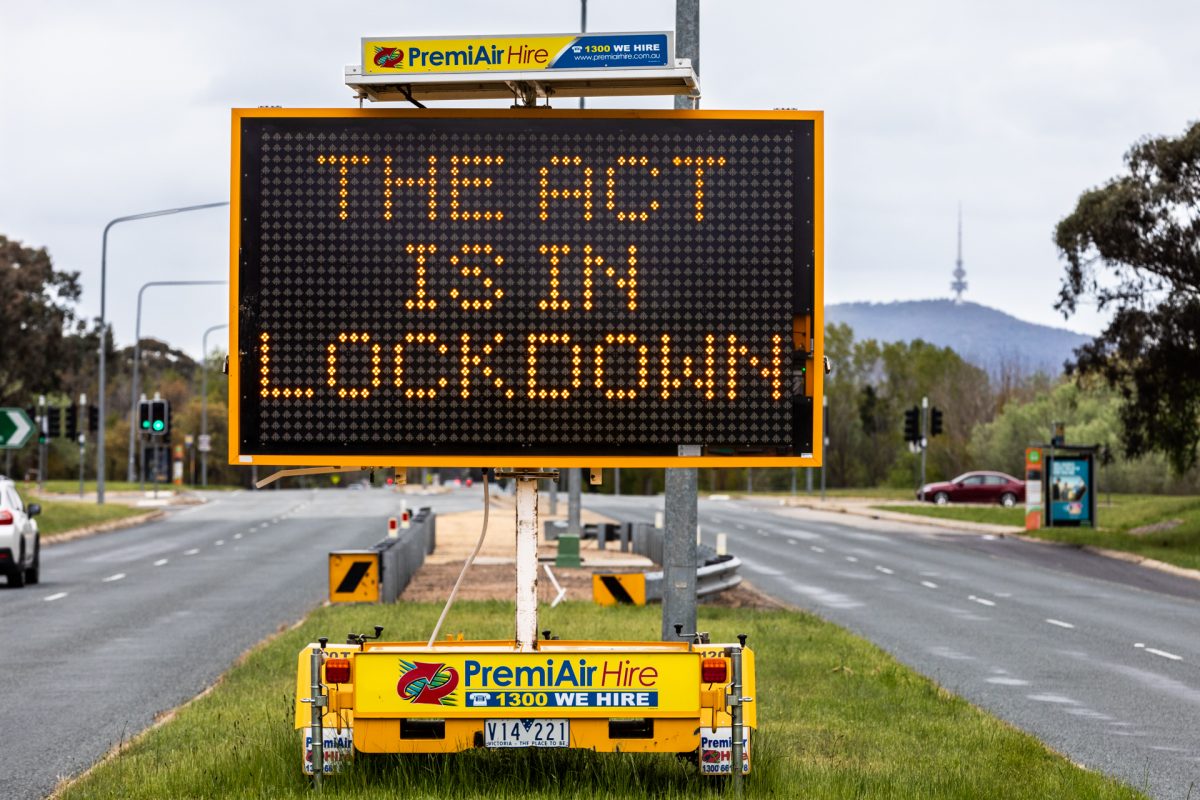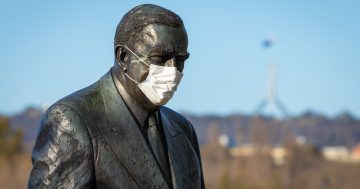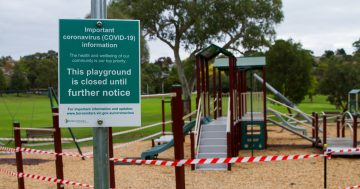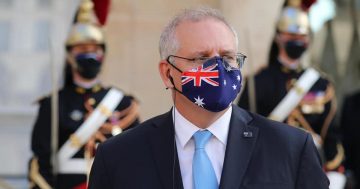
The ACT went into its hardest lockdown due to the Delta outbreak in August 2021. Photo: Michelle Kroll.
Australia’s COVID-19 response of lockdowns and school closures amounted to overreach at all levels of government, a major report has found.
But that premise has already been refuted by the Victorian and Queensland premiers.
Victorian premier Daniel Andrews reportedly described the findings as “academic views”.
“There was nothing academic about COVID-19,” he said.
“I’m much more focused on the future rather than reading the academic views on things that happened some time ago.”

Empty streets marked the sight of the ACT’s Delta lockdown. Photo: Michelle Kroll.
Fault lines: an independent review into Australia’s response to Covid-19 was led by Peter Shergold, former Secretary of the Department of the Prime Minister and Cabinet (2003 to 2008) and the current Chancellor of Western Sydney University.
It concluded border closures were enforced unfairly, were unnecessary in some cases – as were school closures – and not enough was done to protect the country’s most vulnerable.
The report stated lockdowns and border closures should have been used as a last resort due to their significant social and economic costs, and many were due to policy failures.
Likewise, it concluded schools should have stayed open.
“It was sensible to close schools where there was an outbreak and when little was known about how the virus spread. But it was wrong to close entire school systems, particularly once new information indicated that schools were not high-transmission environments,” it read.
The report went on to say the balance had not been struck between protecting health and imposing long-term costs on education, mental health, the economy and workforce outcomes.
It also noted older people, the young, and those who were disadvantaged were most impacted, and border rules were unfairly enforced.
“Business people were often allowed to travel across borders whilst those wanting to visit dying loved ones or newborn family members were not afforded a similar opportunity,” the report read.
Much like the rest of the country, the Territory emerged from the first wave of the virus almost entirely unscathed.
There was a period of turbulence when lockdowns and school closures were first imposed in March 2020. Various restrictions were eased throughout May and students began returning to campus midway through the month.
Then, the Territory managed an entire year from June 2020 to June 2021 with no locally recorded cases.
But COVID-19 was not far away. Border closures threw travel plans for Christmas 2020 into disarray due to the Northern Beaches outbreak.
Throughout the year, there were various periods when travel restrictions were imposed for ACT residents or vice versa between Western Australia, Victoria, NSW, Queensland, South Australia and Tasmania.
The ACT’s strict lockdown came into effect on August 12 last year after one case was reported locally.
That was initially called for seven days but stretched out beyond two months.
During this Delta outbreak, the most vulnerable pockets of Canberra were hit. Public housing communities, prisoners, aged care residents and children.
Business support was, however, quick to arrive, although it was often declared inadequate by critics. During that time, the narrative from local health authorities shifted from waiting for ‘COVID-zero’ to accepting cases and ramping up vaccination efforts.
Schools also moved to remote learning for an extended period. Those periods of remote learning for the Territory’s children persisted well throughout the first half of this year.
Visitor restrictions for aged care also lingered.
But in comparison, Victoria suffered under the strictest lockdown conditions in the country and Melbourne residents endured six lockdowns which lasted over 260 days before they emerged in October 2021.
Professor Shergold’s report calls on all levels of government to heed the lessons of the pandemic and consider the recommendations made by the report.
One of these included putting the most vulnerable at the core of future health crisis planning.
It also recommended better collaboration between state and territory governments.
The review panel comprised Professor Shergold, Jillian Broadbent, Isobel Marshall and Peter Varghese. It was funded by the Paul Ramsay Foundation, the Minderoo Foundation and the John and Myriam Wylie Foundation.
More than 200 health experts, community groups, economists and businesses were consulted throughout the review.
The ACT Government was contacted for a response.



















